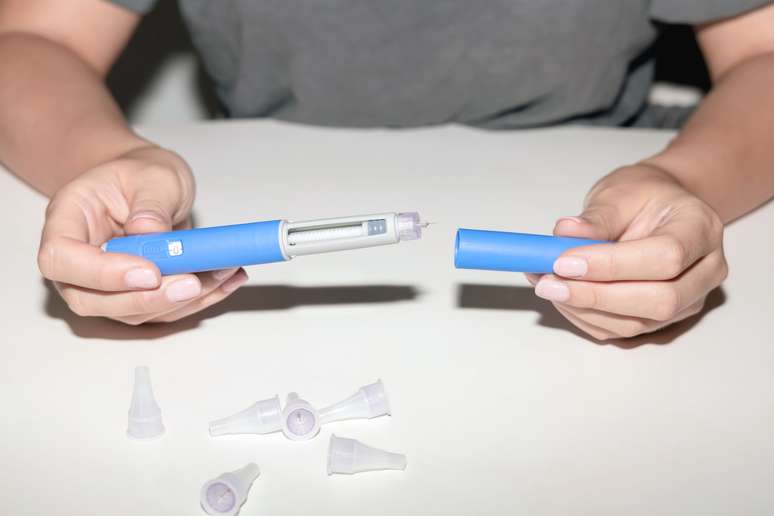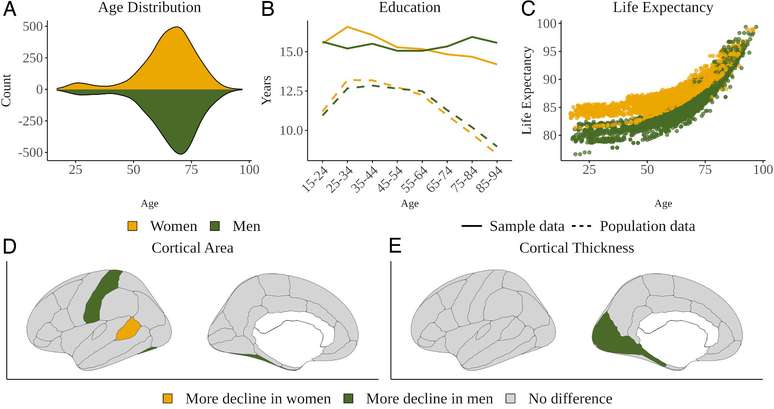A study shows that weight loss through the use of the drug reduces episodes of respiratory arrest in these patients and can also lead to resolution of the disease; understand
The use of tirzepatidethe active substance of the medicine Mounjaro, can significantly reduce the number of breathing interruptions in people with obesity and this happened sleep apnea suffer every night, according to study published in the scientific journal The New England Journal of Medicine On 21 Mounjaro was approved by the National Agency for Health Surveillance (Anvisa) for the treatment of diabetes type 2, but has not yet begun to be sold in Brazil. The substance is also used in other countries to treat obesity.
According to the study, participants who received 10- or 15-milligram doses of tirzepatide had an average 62.8 percent reduction in the apnea-hypopnea index (AHI), which measures the number of times breathing is interrupted during sleep. In practice, that meant about 30 fewer such events per hour.
“This reduction in AHI was very significant, keeping in mind that we already consider a reduction of at least 15 events per hour to be clinically significant,” says Erika Cristine Treptow, a pulmonologist and researcher at the Sleep Institutecompany belonging to AFIP.
Sleep apnea is a common condition: it affects, for example, in Sao Paulo 1 in 3 people – and is characterized precisely by these continuous and brief pauses in breathing when we sleep. This happens because, when a person relaxes while sleeping, the tissues in the region of the pharynx and at the base of the tongue obstruct the airway. There are several causes for this condition, from jaw deformities to aging.
Among the main risk factors, however, obesity and overweight take the lead. According to Brazilian Society of Bariatric and Metabolic Surgery (SBCBM), approximately 70% of people with obesity suffer from obstructive sleep apnea. In these cases, fat deposits occur in the neck region, tongue, soft palate and other throat tissues, narrowing the air passage. Therefore, weight loss is a key element in the treatment of apnea in these patients.
For Luciano Drager, cardiologist and president of the US Brazilian Sleep Association (ABS), the new study shows that tirzepatide can help with this process. “Our medical recommendations for weight loss, diet, and physical activity fail to achieve good adherence in the medium and long term,” he explains. “We have a very effective bariatric surgery, but it is performed on a specific population. So there was a lack of strategies to induce sustained and relevant weight loss, so that we could see an effect on the severity of the apnea.”
How Tirzepatide Works
Tirzepatide is one of the new drugs whose action resembles that of hormones produced in the intestine. For example semaglutidegood of Ozempic Comes from Wegovyworks in the same way as GLP-1, a substance that helps control blood sugar, insulin release, and feelings of satiety and hunger. But in addition to GLP-1, tirzepatide is also similar to GIP, another hormone that helps with this control.
In this way its action is enhanced. In the clinical studies carried out to certify the safety and efficacy of the Mountainparticipants lost an average of 13 percent of their body weight in 12 weeks. In the recent study of people with obesity and sleep apnea, weight loss was about 20 percent over 52 weeks.
According to Drager, it is through this weight loss that tirzepatide improves sleep apnea. “There is no evidence that the drug works directly to improve apnea. It improves indirectly, by treating obesity,” he says.
Erika agrees. “Although it doesn’t directly target the muscles and some of the mechanisms of sleep apnea, it does target the main modifiable risk factor we have for the disease, which is weight gain.”
Experts note that tirzepatide use also caused study participants to experience a reduction in blood pressure, inflammatory markers, and hypoxic damage, which indicates how much a person with sleep apnea’s oxygen levels drop during sleep.
In general, patients who experience greater drops in oxygenation are more likely to experience cardiovascular problems, such as an increased risk of arrhythmias, strokes, and heart attacks. “So improving this aspect of oxygenation ends up having a very significant impact on the lives of these patients,” Erika says.
Complement to treatment
Only obese people with moderate (more than 15 breathing interruptions per hour) or severe (more than 30 AHI) sleep apnea participated in the study. They were divided into two groups: in the first study, those who did not receive any treatment for the sleep. In the second group, participants were treated for apnea with a continuous positive airway pressure (CPAP) generator, a device that mechanically increases the flow of air through the throat.
At the end of 52 weeks, 43% of the subjects in the first research group and 51.5% in the second group had improved to the point of reaching the criteria for resolution of the disease. Drager says this indicates that, regardless of whether the person uses CPAP or not, the use of the drug leads to a substantial reduction in the severity of apnea in people with obesity.
“They haven’t studied whether or not the person will stay off CPAP, but it does indicate that if the person stays on chronic treatment and has an excellent response, it’s possible that some patients may no longer need the device because their apnea is being treated through weight loss,” he explains.
In light of the results, the pharmaceutical company Eli Lilly has submitted a request to the Food and Drug Administration (FDA, the equivalent of Anvisa in the USA) for authorization to use tirzepatide in the treatment of moderate to severe obstructive sleep apnea and obesity. According to declarationThe company will begin filing applications with other global regulatory agencies in the coming weeks.
For the experts interviewed by StateAlthough the results are promising, in most cases tirzepatide will not replace known treatments for sleep apnea. The drug appears only for a specific audience, those affected by obesity, and to broaden the range of available therapies.
Treatments for this sleep disorder usually include the use of CPAP, but also speech therapy to strengthen the muscles that keep the throat open and the use of other intraoral devices. In specific cases, surgery may be indicated.
Source: Terra
Ben Stock is a lifestyle journalist and author at Gossipify. He writes about topics such as health, wellness, travel, food and home decor. He provides practical advice and inspiration to improve well-being, keeps readers up to date with latest lifestyle news and trends, known for his engaging writing style, in-depth analysis and unique perspectives.





![Tomorrow belongs to us: What awaits you in the episodes of 2052 and 2053 on October 15, 2025 [SPOILERS] Tomorrow belongs to us: What awaits you in the episodes of 2052 and 2053 on October 15, 2025 [SPOILERS]](https://fr.web.img6.acsta.net/img/39/95/3995a2d00abbf3c01161818d01a95388.jpg)



